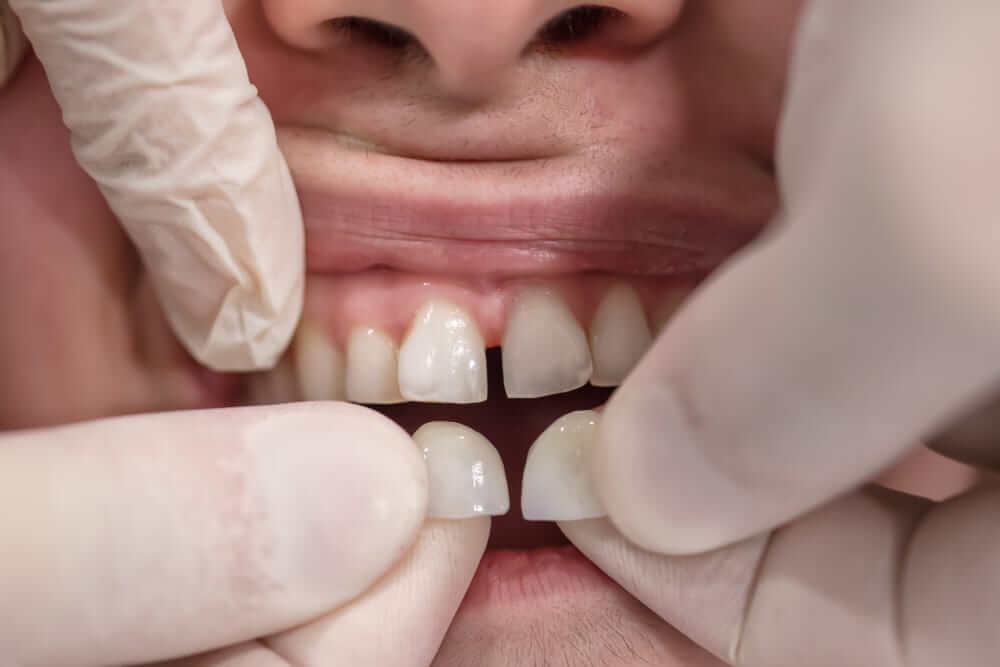
The author of the article
Boris Lipovetskiy, DMD, 31 years experience
Do you want to correct cosmetic defects in your dental alignment? A simple way to do so is to install veneers on your front teeth. They quickly restore the color and shape of your teeth. How can you choose the best type of dental veneer for your smile?
In this article, Dr. Boris Lipovetskiy will help you better understand what color and type of veneer is optimal to enhance your smile. In our clinic, we only place veneers made from safe and quality materials. Read more to learn how dental veneers are made, and who they are suitable for.
Veneers for Cosmetic Tooth Enhancement
Dental veneers are thin prosthetics (ranging from 0.3 to 0.8 mm) made from various types of ceramics or composite materials. They are placed on the front surface of teeth. They correct defects such as misalignment, chips, and stains on teeth. Dental veneers are a natural and durable solution for creating a more attractive smile.

Boris Lipovetskiy
Dentist with 30 years of experience
I recommend safe and quality dental veneers to my patients. Porcelain veneers offer the best combination of durability and aesthetics. They offer amazing protection to your natural teeth. You will be protected against cavities and tooth decay. Additionally, porcelain is stain resistant, much more than your real teeth.
Porcelain veneers are also very durable, and last much longer than other types. They appear natural, and the shells can be fully customized, including color and shape. There is a reason why porcelain is the most popular material for veneers!
Types of Veneers - Pros and Cons
There are 4 types of veneer materials for aesthetic smiles.
The most aesthetic and safe type of veneers. They possess excellent durability and last a long time. Porcelain veneers are made from a special ceramic called E-max, which precisely mimics the natural appearance of enamel. They are customized to match the patient's natural teeth. The level of translucency in E-max ceramic veneers is similar to enamel. Light passes through the veneer, making it indistinguishable from the surrounding teeth.
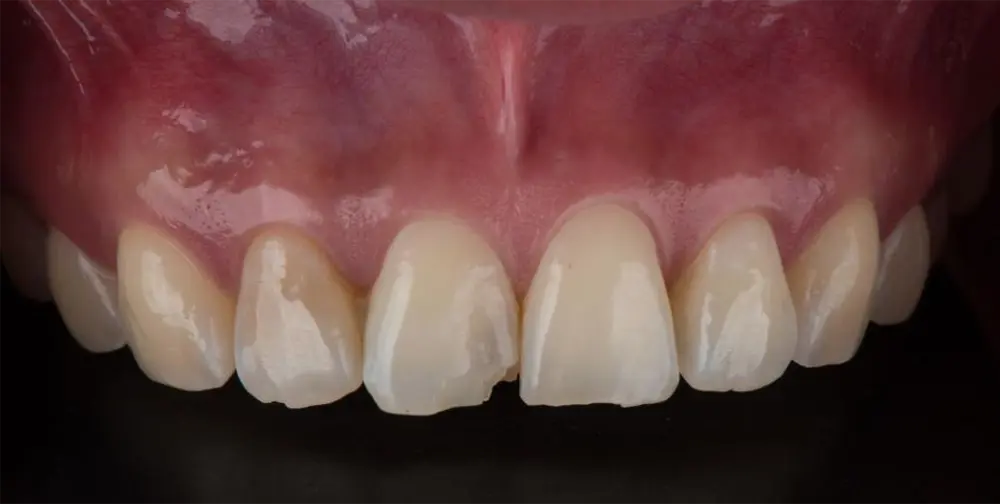
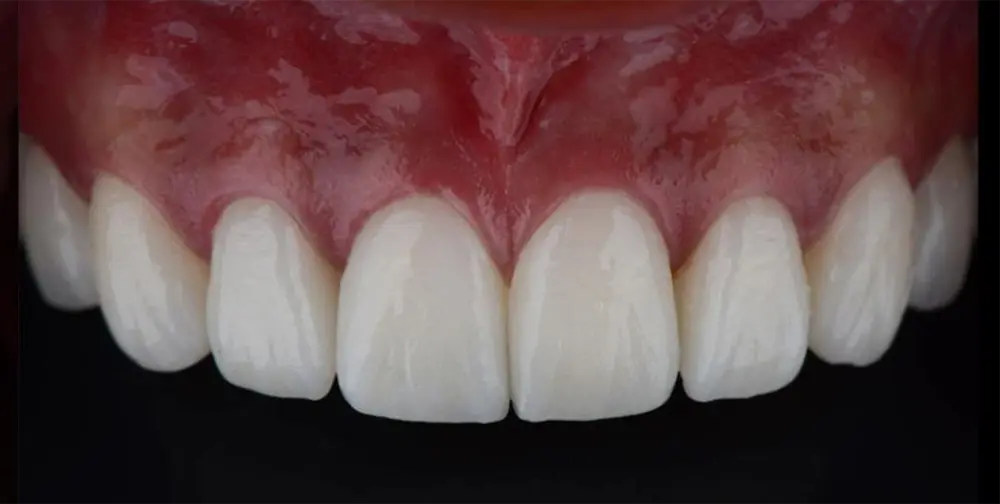
-
The most aesthetic - they have a natural smooth shine.
-
They correct irregularities, tooth shape, and size.
-
Maintain a bright appearance. Not stained by coffee or tobacco.
-
Biocompatible - holistic veneers will not harm the gums and do not cause allergies.
-
Last for more than 15 years (with proper care).
-
Before installation, a slight tooth reshaping is required.
-
They can break due to nighttime teeth grinding. Treatment for bruxism is necessary before installation.
Made from the same material used for dental fillings. Applied directly to the front surface of teeth and shaped accordingly. Composite veneers can be installed in a single day. They are more prone to staining and chipping compared to porcelain veneers.
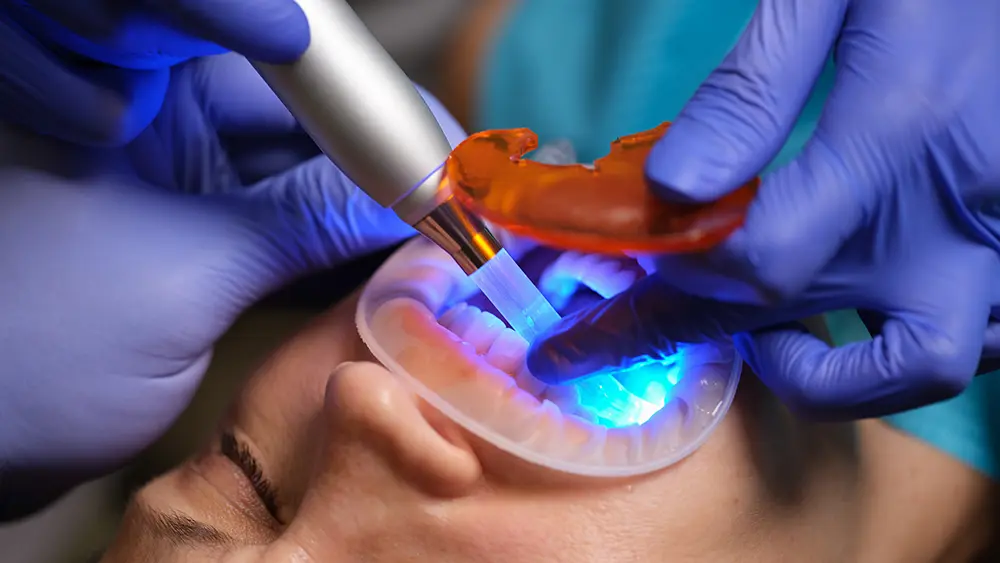
-
The most affordable type of veneers.
-
Installation time - one visit to the dentist.
-
If damaged, composite can be easily repaired.
-
Safe for gums and tooth tissue.
-
The level of aesthetics is lower than that of ceramic veneers.
-
Service life up to 8 years.
-
May wear down during chewing.
-
Change color due to dyes.
Zirconia veneers are made from high-strength zirconium dioxide. Zirconium dioxide is wear-resistant and biocompatible, making it suitable for safe tooth restoration at Healthy & Cosmetic Dentistry.
Zirconium dioxide excellently mimics the shine and translucency of enamel. It has a denser fit than ceramics or composites.
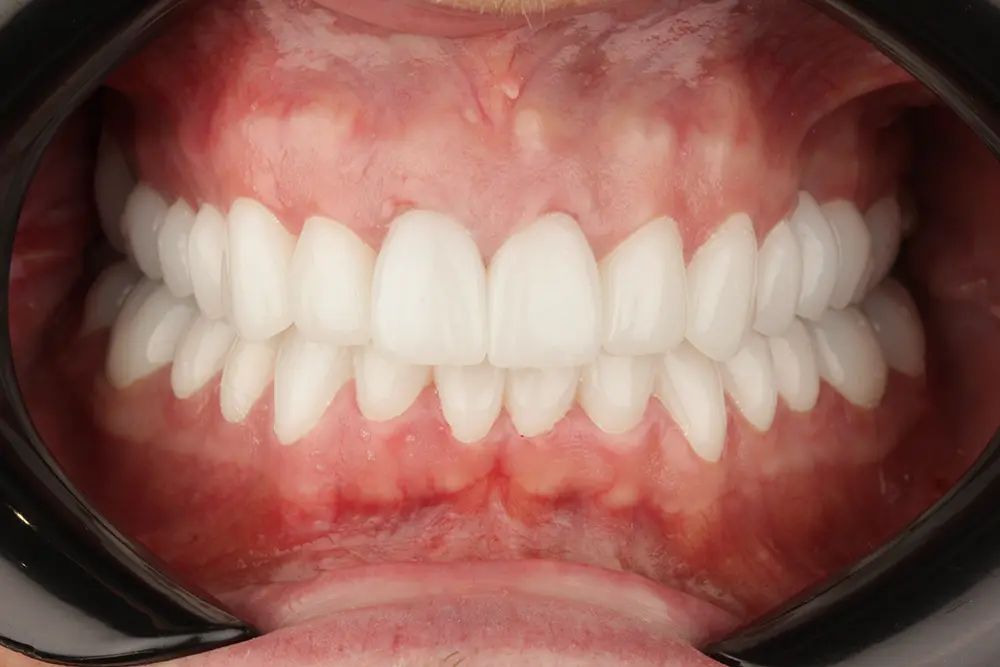
-
Precisely replicate the tooth structure. The doctor selects the color and shape of the veneers to match the patient's existing dental alignment.
-
Exceptionally strong. Resistant to wear. Durable.
-
Well-accepted by the body's tissues and does not cause allergies.
-
Stain-resistant. Maintain brightness and color for a long time.
-
More expensive than other types of veneers (due to the cost of materials and the complexity of manufacturing).
Lumineers are ultra-thin porcelain veneers. They allow for minimal enamel reduction before installation. Lumineers can be removed without causing harm to the teeth. However, due to their thinness, they may not be suitable for all cosmetic cases.
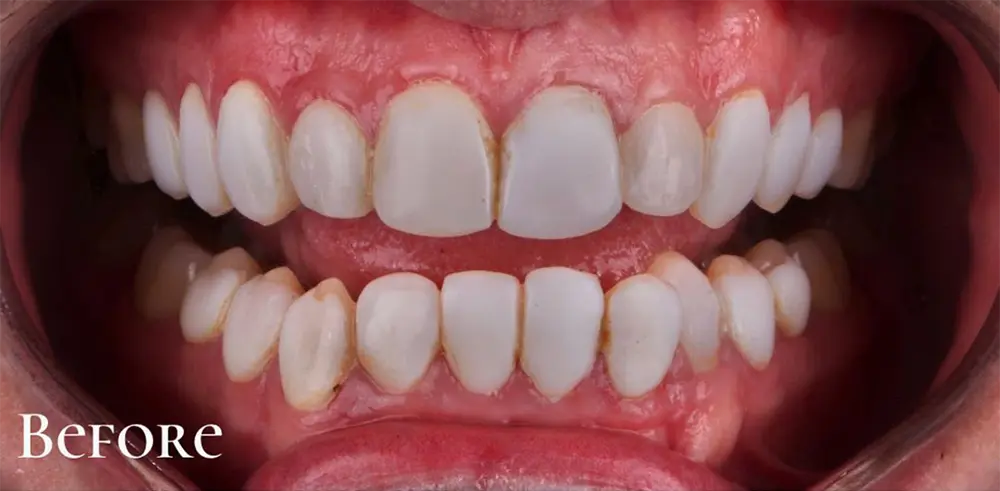
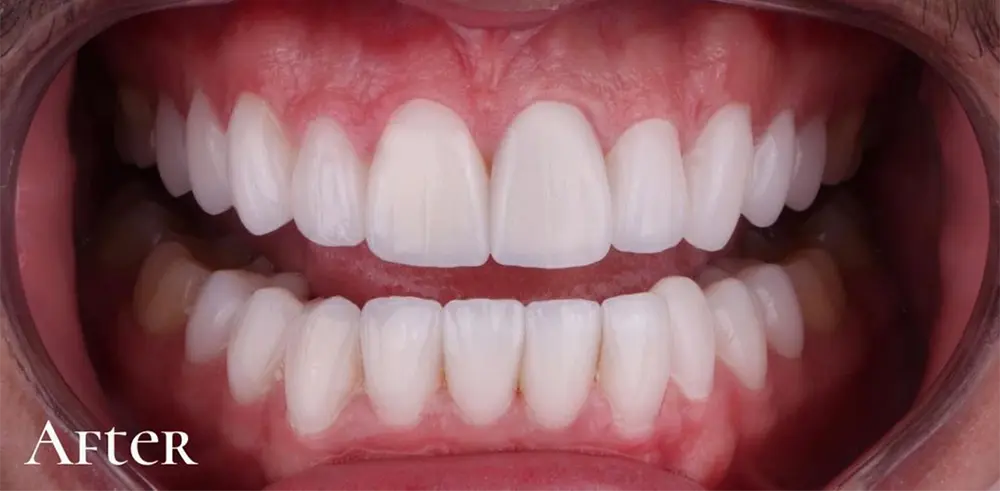
-
Preserve the natural tooth structure.
-
Completely refresh the color of the teeth - creating a Hollywood smile effect.
-
Does not require lengthy preparation - installation is possible in one visit.
-
Not suitable for all cosmetic treatment cases.
-
Shorter service life compared to ceramics.
-
May chip under excessive stress.
What’s The Best Veneer Material?
The best veneer material is porcelain. Porcelain is an extremely hard material. This means it offers amazing protection to your natural teeth. You will be protected against cavities and tooth decay. This material is also very stain resistant, much more than your real teeth. You can drink coffee and wash it down with sushi dipped in soy sauce and still have lovely white teeth.
This material is also very durable. Porcelain veneers last much longer than types. This type of veneer gives a natural look, and the shells can be fully customized, including color and shape. There is a reason why porcelain is the most popular material for veneers!
Comparing Types of Veneers
| Aspect | Porcelain Veneers | Zirconia Veneers | Composite Veneers | Lumineers |
|---|---|---|---|---|
| Dental Porcelain – ceramic material that closely resembles natural tooth enamel. | Zirconia Ceramic – utilizes zirconium dioxide, a strong and tooth-colored material. | Composed of tooth-colored resin that is sculpted and bonded directly to teeth. | Cerinate Feldspathic – thin shells made from a specialized ceramic for minimal tooth reduction. | |
| Thickness | Thin but sturdy shells. | Zirconia veneers are thicker. | Directly applied and sculpted to the teeth's front surface. | Incredibly thin, minimizing enamel reduction during placement. |
| Durability | Excellent durability, able to withstand normal biting forces | Strength and resilience | Composite veneers are more prone to wear and damage over time. | Lumineers are moderately durable but not as strong as some thicker veneer options. |
| Aesthetics | Provide a lifelike aesthetic, replicating natural teeth. | Natural appearance, though not as lifelike as porcelain. | Varies based on the dentist's expertise. | Natural look with a touch of translucency. |
| Color Stability | Highly Stain Resistant. | Resistant to staining. | Prone to staining over time, requiring maintenance. | Moderate stain resistance, but diligence in oral care is important. |
| Strength | Able to withstand normal dental pressures. | Highly resistant to chipping and cracking. | Less strong and more prone to wear compared to other options. | Suitable for normal biting and chewing. |
Are you a candidate for Dental Veneers?
Restoration with veneers is indicated for patients who:

Boris Lipovetskiy
Dentist with 30 years of experience
How Can I Choose The Best Type Of Veneers?
When choosing the best types of veneers, you need to consider the following aspects:
- Shape – Your dentist will work with you to custom design your veneers, so they look natural and fit your mouth.
- Material – Porcelain is considered the superior material due to its durability and stain resistance
- Color – The last thing you want to do is end up with overly white veneers
- Budget – Porcelain veneers are by far the most expensive type of veneers, while lumineers tend to be the cheapest.
How Do I Care for Veneers?
Follow these recommendations to extend the lifespan and maintain your Hollywood smile:
-
Limit the stress on teeth with veneers. Avoid biting into hard foods
-
Avoid or reduce the consumption of staining substances (coffee, red wine, strong tea) or minimize their contact with your veneers
-
Avoid sudden temperature changes in your mouth. Do not consume hot and cold items in rapid succession.
-
Maintain your regular oral hygiene routine: brush in the morning before breakfast and in the evening before bedtime.
-
Use a toothbrush with soft bristles and non-abrasive, non-whitening toothpaste.
-
You can use an irrigator or mouthwash.
-
If you use dental floss, clean between your teeth carefully. Insert the floss tip into the widest part of the gap, not from below. Remove it in the same way.
FAQ
Veneers differ from Lumineers in:
- Material (Lumineers are made from Cerinate ceramic).
- Strength (Veneers made from zirconia or E-max ceramic are 3-4 times stronger than Lumineers).
- Thickness (Lumineers are approximately 0.3 mm thick).

